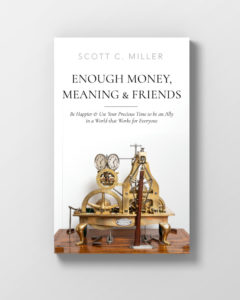
Three more bullet points to finish off the previous blog post, “So, at the risk of sounding overly simplistic about how to fix a problem that we have spent trillions of dollars not solving since the War on Poverty was launched 50-plus years ago, let me break it down in this way…”
● Insist that all government benefit programs be coordinated for a user-friendly experience with one intake, with one simple process of determining eligibility, and with a simple pro-rated exit ramp as people earn more income. Currently, there are too many agencies running benefit programs that have built-in disincentives that punish people for making too much income. For example, if you make an extra dollar per hour you may lose all of your childcare assistance and/or Medicaid. This is a lazy public policy designed for administrative convenience and is a complete waste of tax dollars. Even worse, such a policy makes people squander valuable time navigating complex programs instead of using their time to become self-sufficient. Current benefit programs cause people to avoid new jobs and salary increases, and, as designed, they guarantee a steady level of poverty in America.
● Appreciate that if people are going to move out of generational poverty, they are going to need jobs they can handle; peer support from others who are succeeding; networking opportunities from volunteers with middle-income and upper-income means; and a powerful game plan to overcome their personal barriers to getting, keeping, and advancing in a good-paying job. A program such as Circles USA provides all of these supports. Without a complementary community-building strategy, typical programs do not have the staying power to interrupt generational poverty.
● Finally, if you want to increase your poverty IQ and make an effective contribution to the cause, you must find a way to form a relationship with someone who has experienced poverty. Without this, your ideas are likely to be just off enough to have the unintended consequence of delaying the real solution to eradicating poverty in our communities.
Yes, we all must take responsibility for ensuring our economic stability. And yes, we must design systems that incentivize people to do the right thing. Solving poverty is a “both-and” approach rather than an “either-or” choice. As my co-author, Denise Rhoades, and I argue in our book, Bootstraps and Benefits, we need to have more meaningful community dialogue that results in strategies that effectively address poverty and allow more people to thrive.
From the book: Enough Money, Meaning & Friends ~ By Scott C. Miller
To learn more about Scott Miller, please see his website here.

